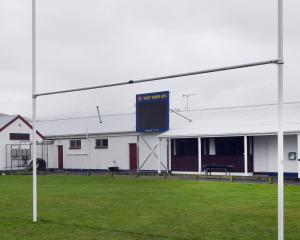Approval for the long-awaited Dunedin Hospital intensive care unit upgrade has been pushed back to March at the earliest, it has been confirmed.
Initially, it was hoped the $11million upgrade would not get bogged down in a drawn-out approval process.
The upgrade was considered urgent last year, when the unit lost its accreditation to train specialists, and it was initially hoped building work would start by mid-2015 or sooner.
ICU is one of three projects put forward for long-awaited upgrades.
The gastroenterology and audiology upgrades progress to lead design team appointment stage in a couple of weeks.
Last month, the board insisted extra planning work required before approval of the ICU project would not further delay the project.
But this week infrastructure and strategic projects director Peter Beirne acknowledged it would not be reconsidered by the National Health Board's capital investment committee in Wellington until next March.
Acting chief medical officer Dr Stephen Chalcroft said in a statement the board would approach the College of Intensive Care Medicine to seek training re-accreditation once refurbishment got under way.
''More detail is required by the capital investment committee before the formal approval is granted to progress the upgrade of the intensive care facility and supplementary information to the case is currently being prepared,'' Dr Chalcroft's statement said.
The board had appealed the loss of training accreditation in orthopaedics, and was still awaiting the outcome, Dr Chalcroft's statement said.
The orthopaedics loss relates to questions over the adequacy of trainee supervision.
The Resident Doctors' Association warned this week training accreditation issues in different parts of the country was a worrying sign.
It could herald a decline in clinical standards, national secretary Dr Deborah Powell said.
Training accreditation would be lost in Auckland DHB's ICU in December, and was under threat at Waikato DHB's obstetrics and gynaecology department.
''Training accreditation doubles as a key standard of clinical care and quality that is being delivered in any area.
''To be able to have doctors training to be specialists, a department must meet minimum standards that are independently set by colleges and include indicators of quality of care, supervision and a commitment to training which maintains clinical excellence.
''A loss of accreditation means a loss of trainees, but must also raise concerns about the standard of clinical practice in the area,'' Dr Powell said.
The union planned to survey its 3000 junior doctor members about their training experiences and what they thought was needed to improve the quality of supervision and training provided by hospitals, Dr Powell said.












